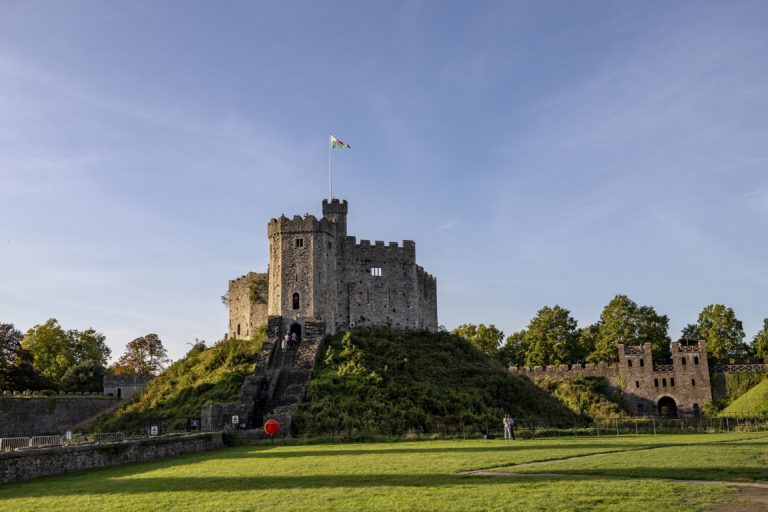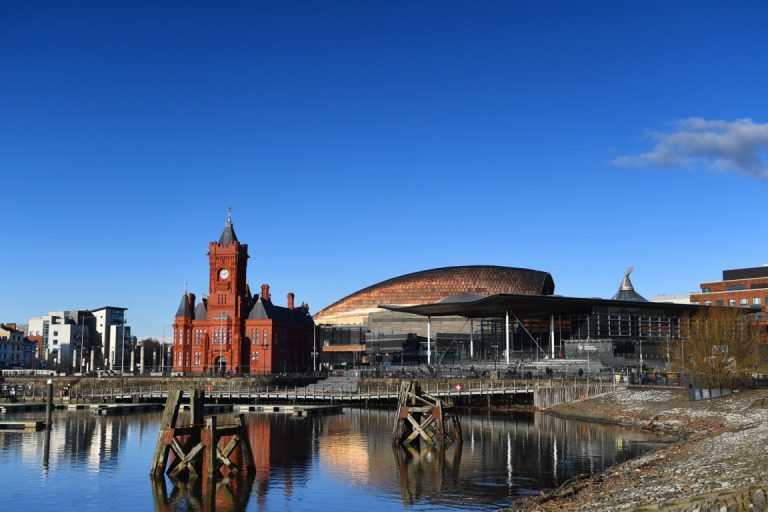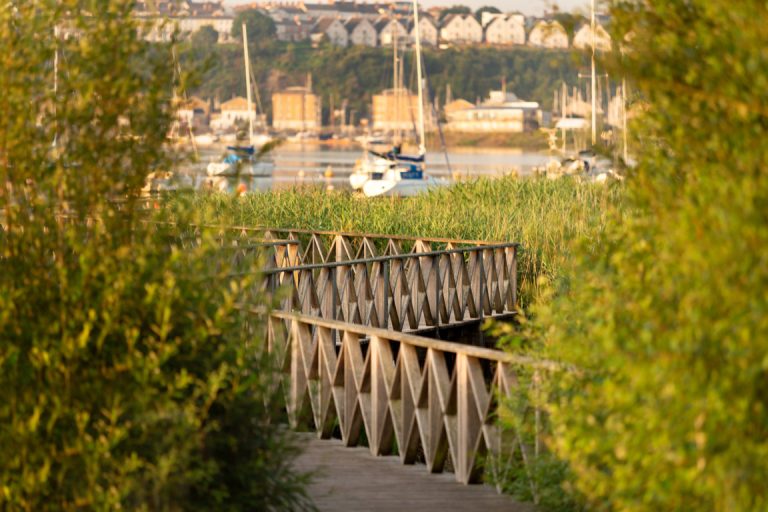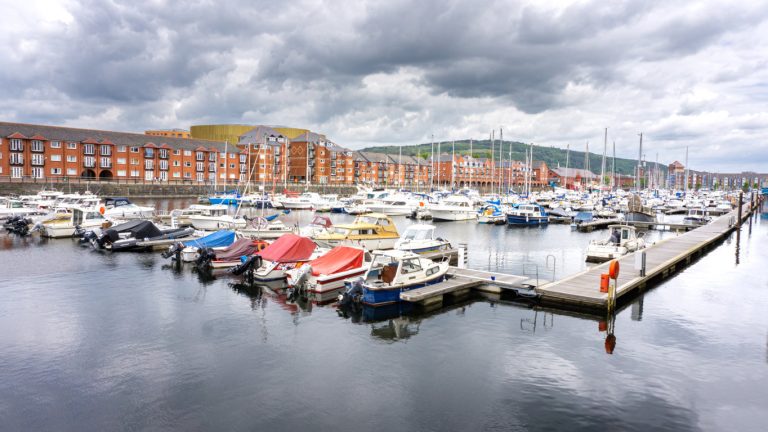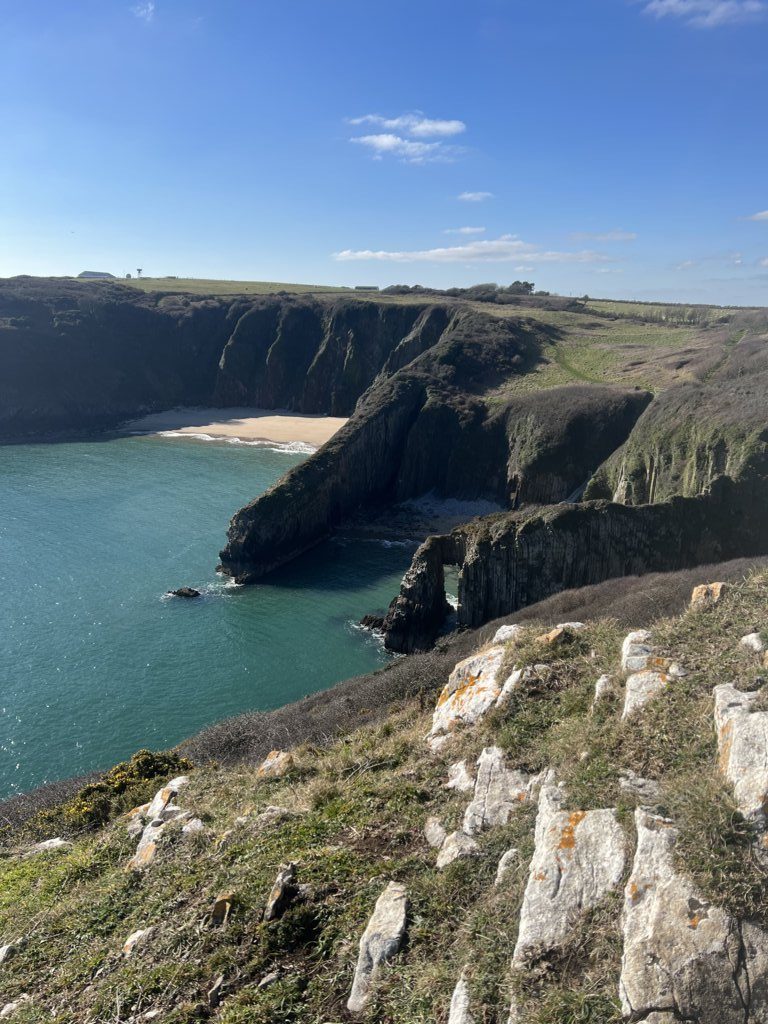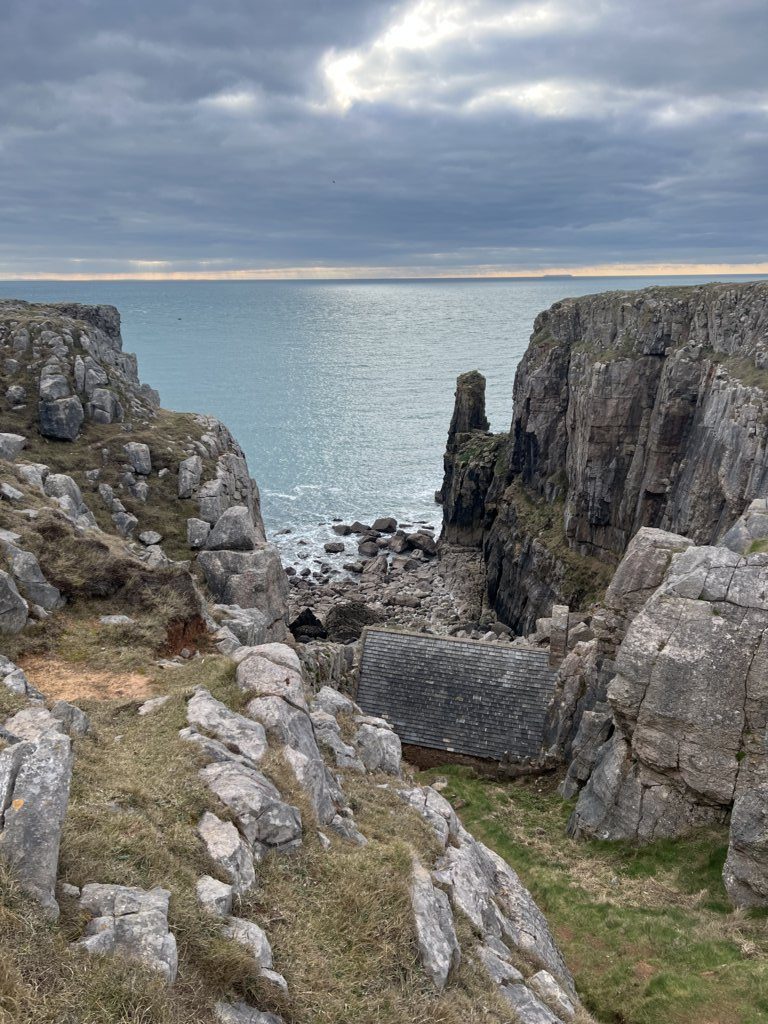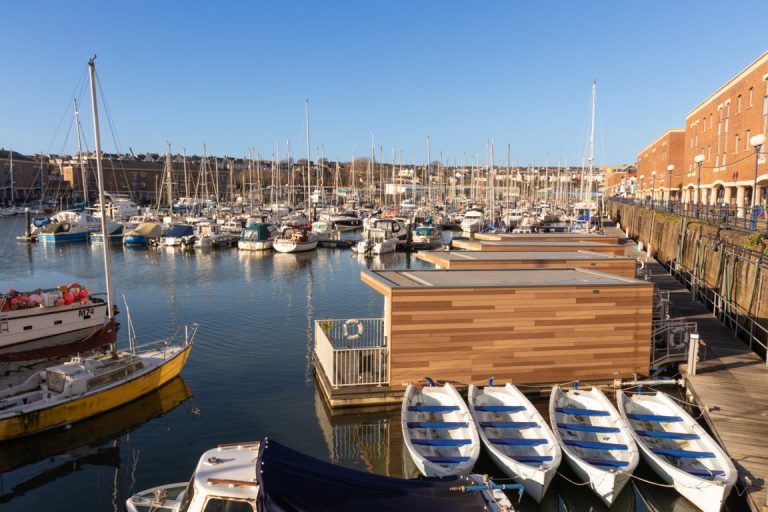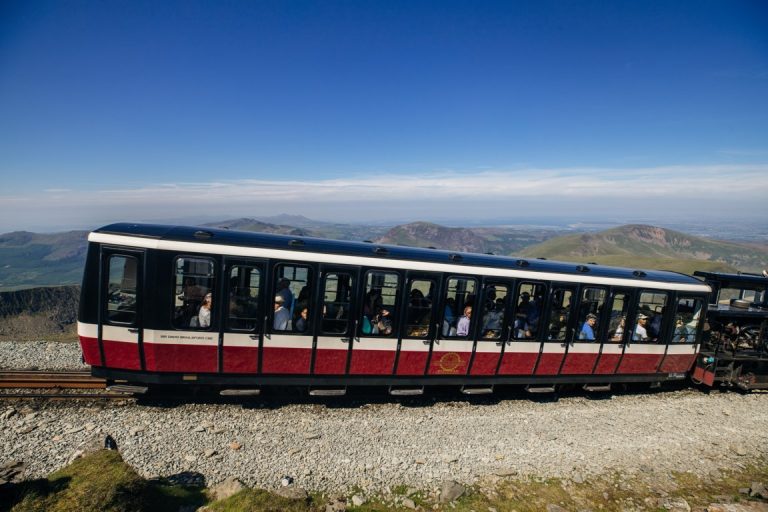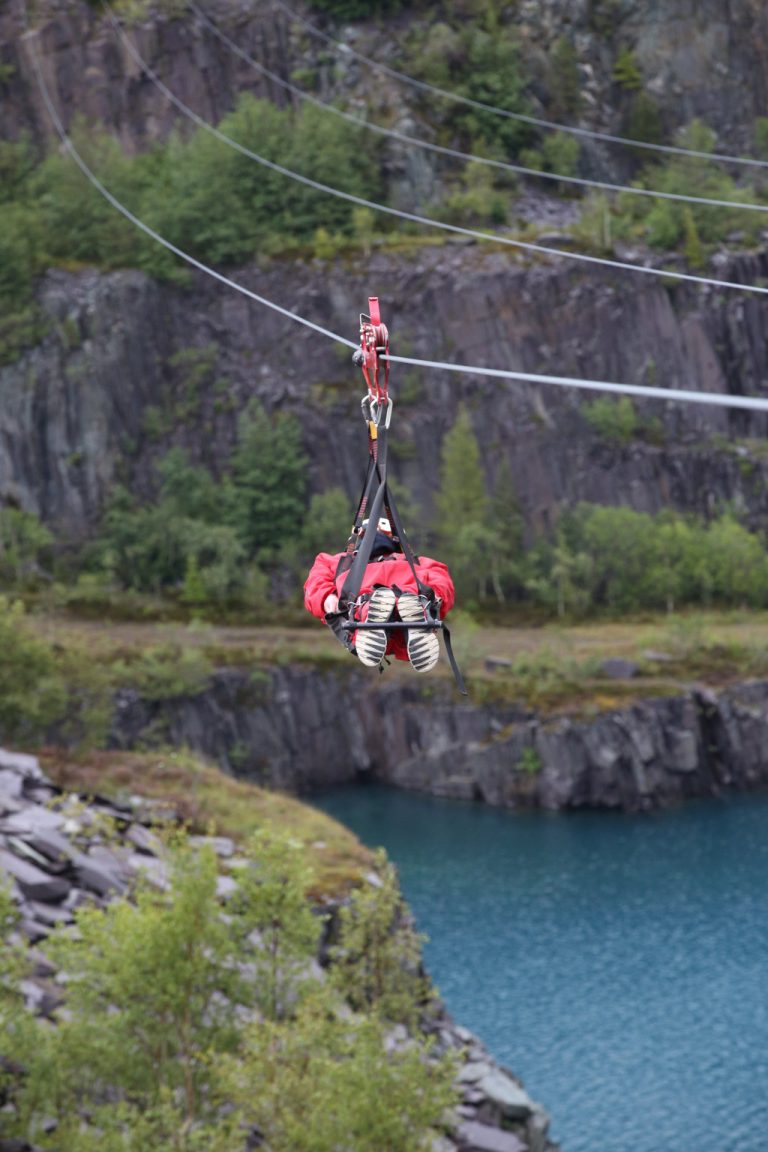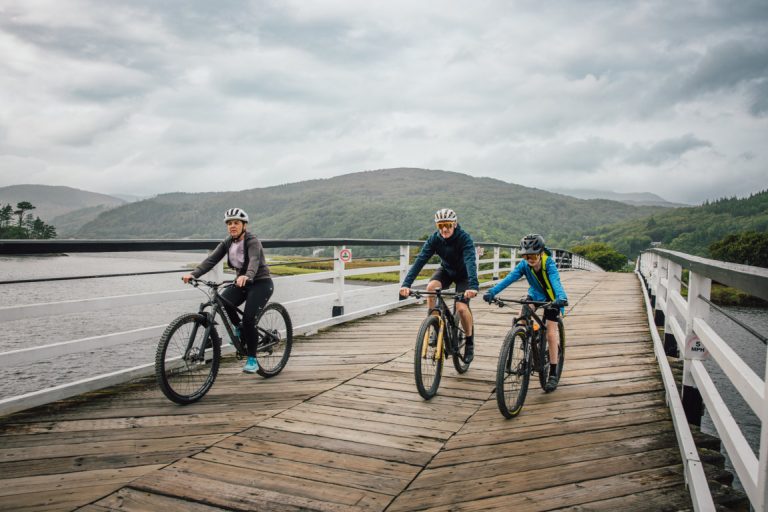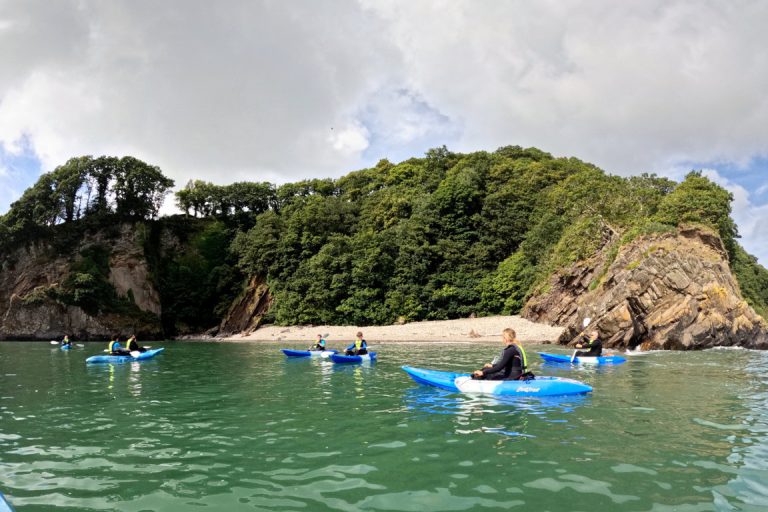Wales: A Strategic Destination for Sustainable Tourism
Wales, with its rugged coastlines, towering mountains, and deeply rooted cultural traditions, represents one of the most captivating and sustainable cruise tourism destinations in the United Kingdom.
Welsh ports offer a wide range of experiences, from nature excursions in areas of outstanding natural beauty to historical visits to castles and gardens, as well as outdoor activities that highlight local biodiversity. In an era where sustainability is at the heart of the tourism industry, Wales stands out for its eco-friendly practices and commitment to environmental conservation.
Cardiff Castle
Senedd
South Wales is a vibrant region that combines world-renowned sporting events, a rich cultural heritage, and breathtaking landscapes, with Cardiff as its beating heart. The Port of Cardiff, located in the lively Welsh capital, serves as the perfect gateway to explore this dynamic city, where history and innovation intertwine. Famous for Cardiff Castle, the modern Cardiff Bay, and the Senedd (the Welsh Parliament), the city is investing in sustainable infrastructure to accommodate the growing number of cruise visitors. Tourists can get around using eco-friendly transport options such as electric buses and cycling routes or immerse themselves in nature by exploring the Cardiff Bay Wetlands Reserve, a protected area home to numerous bird species and native plants.
Beyond Cardiff, South Wales offers spectacular scenery such as the Wye Valley, a perfect destination for hikers and nature enthusiasts, as well as charming towns like Newport, Bridgend, and Merthyr Tydfil, rich in industrial history and local traditions. The Vale of Glamorgan, with its picturesque beaches and coastal villages, is ideal for those seeking a peaceful retreat, while the historic mining valleys of Rhondda Cynon Taf and Blaenau Gwent tell the story of the region’s industrial past. With this blend of culture, sustainability, and natural beauty, South Wales stands out as an unmissable destination for travelers seeking authentic and responsible experiences.
Cardiff Bay Wetlands Reserve
Swansea Marina
Swansea Port, located in southern Wales, is a prime entry point for visitors looking to explore the Gower Peninsula, the first area in the UK to be designated as an Area of Outstanding Natural Beauty. The peninsula is an ideal destination for those seeking to combine nature and sustainability: Three Cliffs Bay, one of its most iconic spots, is the perfect example of how natural beauty is preserved through responsible environmental management policies. Furthermore, the coastal landscape, with its towering cliffs and long sandy beaches, is perfect for eco-tourism, allowing visitors to enjoy nature without damaging it. The link to the legend of King Arthur and the Arthur’s Stone site adds a historical dimension to the experience, attracting those interested in culture as well as nature.
Sustainable management policies in the region’s ports and natural attractions are focused on conserving natural resources, with Wales actively working to reduce the environmental impact of tourism activities by promoting low-impact transportation and protecting its ecosystems.
In western Wales, Pembrokeshire is a region that perfectly exemplifies the combination of sustainable tourism and biodiversity conservation. Fishguard Port is the ideal starting point to explore the natural beauty and unique attractions of this area. One of the most sustainable and fascinating experiences visitors can have is the Hidden Routes E-Bike Experience. Thanks to electric bikes, tourists can explore the mountain trails and wooded valleys of Pembrokeshire in an eco-friendly way, enjoying spectacular views without the environmental impact of traditional transportation methods. This type of activity promotes active and mindful tourism, helping to reduce carbon emissions and support local economies.
Pembrokeshire-coast-path
Pembrokeshire-coast-path
Foraging activities, such as those offered by Fishing and Foraging Wales, are a perfect example of how luxury can be combined with sustainability education. Guests can learn to gather food directly from nature, with expert guides explaining how to respect local ecosystems, ensuring the conservation of natural resources for future generations. The experience thus becomes not only an opportunity to taste the fruits of the land but also a moment of deep connection with the surrounding environment.
Kayaking along the coasts of Fishguard is another activity that fits perfectly within the framework of responsible tourism, allowing visitors to observe wildlife and marine biodiversity up close without disturbing the environment. Additionally, the possibility of hiking directly from the port allows visitors to explore the region in a sustainable manner, helping to raise awareness about the importance of preserving natural and historical heritage.
In this context, Fishguard also offers a visit to a Welsh family’s home, an opportunity that goes beyond conventional tourism, promoting local community engagement and allowing visitors to learn more about Welsh culture, traditional food, and local languages. This type of experience generates economic benefits for local families and stimulates cultural tourism, fostering a form of sustainable tourism that directly supports communities.
Also located in the western part of the country, the port of Milford Haven provides privileged access to the Pembrokeshire Coast National Park, one of the most spectacular and protected coastal areas in the UK. Milford Haven is also recognized as the UK’s leading energy port and is committed to providing port services in a safe, responsible, and efficient manner. Visitors can take part in low-impact boat tours to observe marine wildlife, such as seals and dolphins, or explore the stunning Pembrokeshire Coast Path on foot—a 299 km trail that offers breathtaking views along the coastline.
Milford Haven
snowdonia-national-park.jpg
North Wales is a region that combines tradition and innovation in an extraordinary way. Holyhead Port, located on the island of Anglesey, provides direct access to one of the most spectacular mountain landscapes in Wales: the mountain range that culminates in the peak of Snowdon, the highest mountain in the country. Visitors arriving here can take a journey aboard the historic Snowdon Mountain Railway, which will take them to over 1,000 meters in altitude, offering breathtaking views. Sustainable management of this attraction is one of the region’s distinctive features, as the railway is designed to minimize environmental impact, while conservation policies promote the protection of the surrounding natural habitats.
Another landmark for sustainable tourism is Zip World, an adventure park offering a unique zipline experience. This park, one of the largest in the world, is designed with a strong focus on sustainability, using innovative technologies to reduce energy consumption and the environmental impact of its operations. The zip lines allow visitors to soar over mountain landscapes and valleys, providing an exciting yet eco-friendly experience, perfectly aligned with the sustainable tourism policies of North Wales.
Zip world
Zip world
Wales serves as an example of how cruise tourism can align with sustainability. Ports such as Swansea, Fishguard, and Holyhead are committed to practices that reduce environmental impact and promote the responsible use of natural resources. In addition to outdoor activities, Wales is investing in wildlife protection, conservation of natural areas, and environmental quality improvements, with policies that encourage low-impact tourism.
The country has joined international initiatives for environmental protection and promotes the use of eco-friendly technologies to enhance the tourist experience and reduce pollution. Visitors choosing Wales as a destination can therefore be assured that their environmental impact will be minimized, without sacrificing the quality of their experience.
Wales remains one of the most fascinating and sustainable cruise tourism destinations, offering visitors not only breathtaking landscapes but also a concrete commitment to environmental protection. The ecological practices adopted in its ports and attractions, combined with numerous experiences designed to raise awareness about biodiversity conservation, make Wales a shining example of how tourism can go hand in hand with sustainability. Companies such as Explora Journeys are increasingly focused on offering their guests experiences that not only celebrate the beauty of the places visited but also bring them closer to understanding the importance of protecting the fragile ecosystems surrounding us. Foraging activities, e-bike tours, and wildlife experiences not only offer direct contact with nature but also educate guests on mindful and responsible tourism.
Biking
Kayaking
In this context, Wales is not just a destination for nature lovers but also stands as a model for innovative tourism, where sustainability is not an option, but a true philosophy that enriches every journey. By combining tradition, innovation, and nature, Wales represents a more responsible and conscious future for cruise tourism.
Don’t miss news, updates, and reviews from the cruise world on Cruising Journal.

